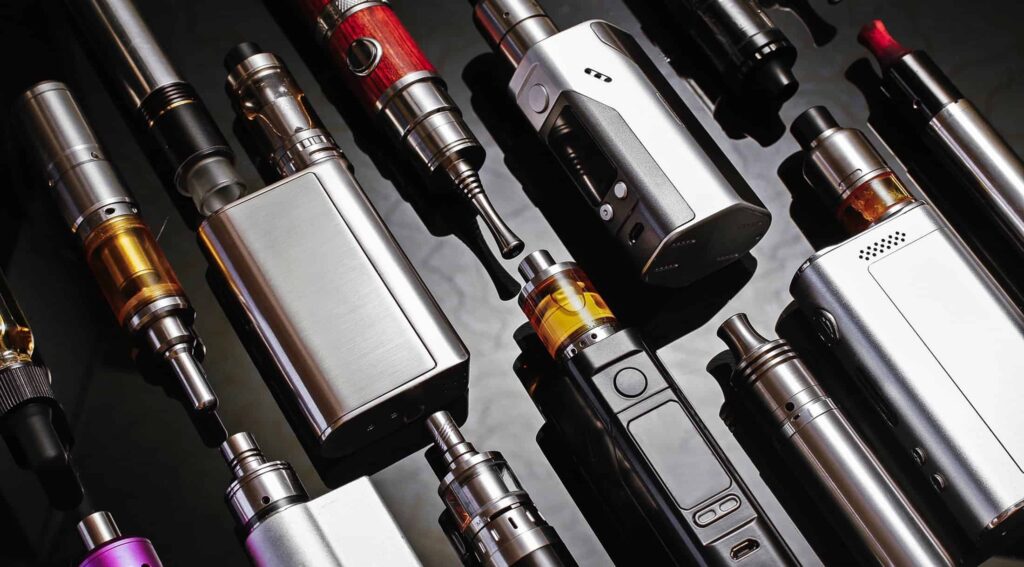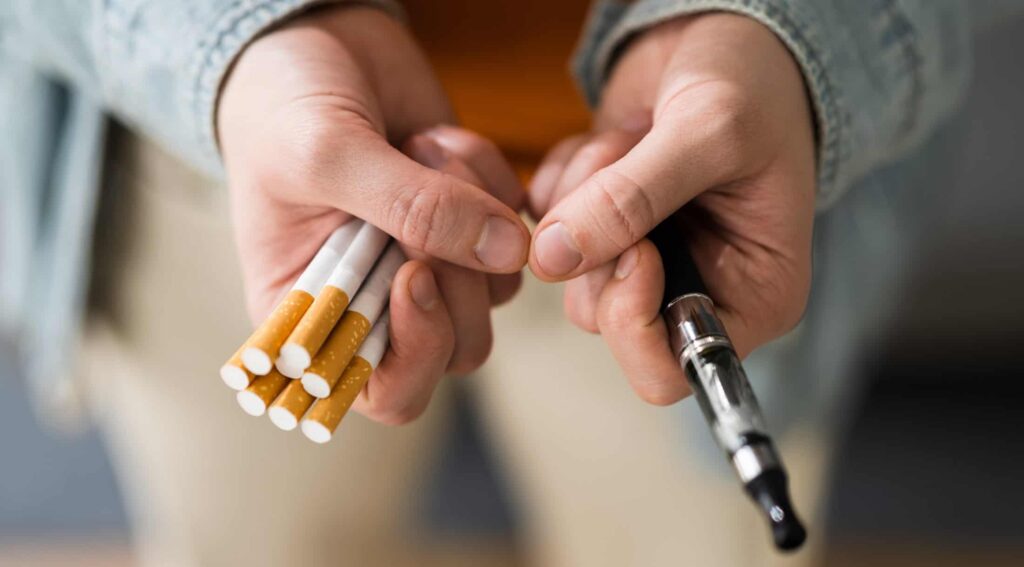It is common knowledge that smoking can have seriously disastrous effects on your oral health. However, these days it is cool to do vaping which is increasing in popularity over the last few years.
There is a common myth that e-cigarettes are better for you than smoking. However, vaping still involves nicotine delivery into the body, and nicotine affects the blood vessels in your gums.
Despite vaping’s well-documented adverse health reactions, recent research from the Australian National Drug Household Survey revealed that vaping among the 14-17 age group has doubled in recent years, and quadrupled in the 25-29 age bracket.
How does vaping work?
Vaping works by heating a liquid to generate an aerosol that the user inhales. The liquid in the e-cigarette, called e-liquid, is usually made up of propylene glycol, glycerine, flavourings, water, and nicotine. While vaping may tend to have lower nicotine concentration than cigarettes, it still involves nicotine delivery into the body, and nicotine affects the blood vessels in your gums.
How does vaping affect your teeth and gums?
Nicotine has a significant effect on salivary flow. Saliva is important to protect against tooth decay, acid erosion and allow bacteria to stick more easily to teeth and gums. E-cigarettes contain popylene glycol, which breaks down in the mouth into acids that can permanently damage tooth enamel and dentine by dissolving them away.
Several studies over the last 8 years have found out that vaping has a detrimental effect not only on your body, but also on your oral health which may include:
Excess bacteria
A 2018 study found that teeth that had been exposed to e-cigarette aerosol had more bacteria than those that had not. This difference was greater in the cavities and crevices of teeth. Excess bacteria are associated with tooth decay, cavities, and gum diseases.
Dry mouth
Propylene glycol which is the liquid in e-cigarettes can cause mouth dryness which leads to bad breath, mouth sores, and tooth decay.
Inflamed gums
A 2016 study suggested e-cigarette use triggers an inflammatory response in gum tissues. Ongoing gum inflammation is associated with various periodontal diseases.
Overall irritation
A 2014 review reported that vaping can cause mouth and throat irritation which cause tenderness, swelling, and redness in the gums.
Cell death
According to a 2018 review, studies of live cells from human gums suggest vaping aerosols can increase inflammation and DNA damage. This can lead cells to lose their power to divide and grow, which can speed up cell aging and result in cell death.
Vaping like smoking can play a role in oral health issues such as:
- Periodontal diseases
- Bone loss
- Tooth loss
- Dry mouth
- Bad breath
- Tooth decay
According to Dr Sue Ching Yeoh, an oral medicine specialist and spokesperson for the Australian Dental Association, vaping also changes the composition and balance of your oral flora (bacteria or fungal organisms that live in your mouth), which leads to an increased risk of oral infections.
How does vaping compare to smoking cigarettes?
A 2018 study by the National Academy of Sciences concluded that research suggests vaping poses fewer oral health risks than smoking cigarettes. However, tobacco and cigarettes have been around a long time while vaping is relatively recent, so more information is required to understand how vaping can affect your oral health.
An overview of vaping vs smoking:
| Oral health condition | Caused by Smoking | Caused by vaping |
| Gum disease | Yes | Yes |
| Increased chances of cavities | Yes (to a small extent) | Yes (to a large extent if there is sugar in the vapour) |
| Tooth staining | Yes | Maybe- definitely less so than smoking |
| Oral Cancer | Yes | Maybe |
| Tooth grinding | Yes | Yes |
| Bad breath | Yes | Yes- but less so than smoking |
Concerned with vaping?
If you are concerned with vaping affecting your oral health, Malouf Dental can examine your teeth and gums and look at the soft lining of your mouth for infections and lesions.
Call our friendly team on 3390 6100 or email us. Or click here to book online.
This article is written by using various sources including research studies from the internet, and Malouf Dental does not claim any authenticity to these sources.









